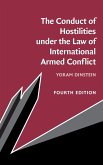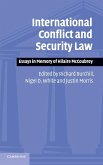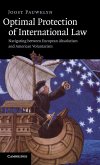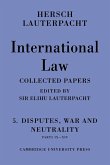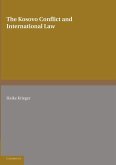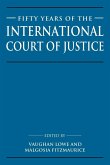A rich array of responses to the question of what it means to speak and write about international law today.
Institutional and political developments since the end of the Cold War have led to a revival of public interest in, and anxiety about, international law. Liberal international law is appealed to as offering a means of constraining power and as representing universal values. This book brings together scholars who draw on jurisprudence, philosophy, legal history and political theory to analyse the stakes of this turn towards international law. Contributors explore the history of relations between international law and those it defines as other - other traditions, other logics, other forces, and other groups. They explore the archive of international law as a record of attempts by scholars, bureaucrats, decision-makers and legal professionals to think about what happens to law at the limits of modern political organization. The result is a rich array of responses to the question of what it means to speak and write about international law in our time.
Table of contents:
1. A jurisprudence of the limit Anne Orford; Part I. Sovereignty Otherwise: 2. Speaking law: on bare theological and cosmopolitan sovereignty Costas Douzinas; 3. Law as conversation Ian Duncanson; 4. Corporate power and global order Dan Danielsen; 5. Seasons in the abyss: reading the void in Cubillo Connal Parsley; Part II: Human Rights and Other Values: 6. Reassessing international humanitarianism: the dark sides David Kennedy; 7. Trade, human rights and the economy of sacrifice Anne Orford; 8. Secrets of the fetish in international law's messianism Judith Grbich; 9. Human rights, the self and the other: reflections on a pragmatic theory of human rights Florian F. Hoffmann; Part III. The Relation to the Other: 10. Completing civilization: Creole consciousness and international law in nineteenth century Latin America Liliana Obregón; 11. From 'savages' to 'unlawful combatants': a postcolonial look at international humanitarian law's 'other' Frédéric Mégret; 12. Lost in translation: rescripting the sexed subjects of international human rights law Dianne Otto; 13. Flesh made law: the economics of female genital mutilation legislation Juliet Rogers; Part IV. History's Other Actors: 14. On critique and the other Antony Anghie; 15. Afterword: and forward - there remains so much we do not know Hilary Charlesworth and David Kennedy.
Hinweis: Dieser Artikel kann nur an eine deutsche Lieferadresse ausgeliefert werden.
Institutional and political developments since the end of the Cold War have led to a revival of public interest in, and anxiety about, international law. Liberal international law is appealed to as offering a means of constraining power and as representing universal values. This book brings together scholars who draw on jurisprudence, philosophy, legal history and political theory to analyse the stakes of this turn towards international law. Contributors explore the history of relations between international law and those it defines as other - other traditions, other logics, other forces, and other groups. They explore the archive of international law as a record of attempts by scholars, bureaucrats, decision-makers and legal professionals to think about what happens to law at the limits of modern political organization. The result is a rich array of responses to the question of what it means to speak and write about international law in our time.
Table of contents:
1. A jurisprudence of the limit Anne Orford; Part I. Sovereignty Otherwise: 2. Speaking law: on bare theological and cosmopolitan sovereignty Costas Douzinas; 3. Law as conversation Ian Duncanson; 4. Corporate power and global order Dan Danielsen; 5. Seasons in the abyss: reading the void in Cubillo Connal Parsley; Part II: Human Rights and Other Values: 6. Reassessing international humanitarianism: the dark sides David Kennedy; 7. Trade, human rights and the economy of sacrifice Anne Orford; 8. Secrets of the fetish in international law's messianism Judith Grbich; 9. Human rights, the self and the other: reflections on a pragmatic theory of human rights Florian F. Hoffmann; Part III. The Relation to the Other: 10. Completing civilization: Creole consciousness and international law in nineteenth century Latin America Liliana Obregón; 11. From 'savages' to 'unlawful combatants': a postcolonial look at international humanitarian law's 'other' Frédéric Mégret; 12. Lost in translation: rescripting the sexed subjects of international human rights law Dianne Otto; 13. Flesh made law: the economics of female genital mutilation legislation Juliet Rogers; Part IV. History's Other Actors: 14. On critique and the other Antony Anghie; 15. Afterword: and forward - there remains so much we do not know Hilary Charlesworth and David Kennedy.
Hinweis: Dieser Artikel kann nur an eine deutsche Lieferadresse ausgeliefert werden.


